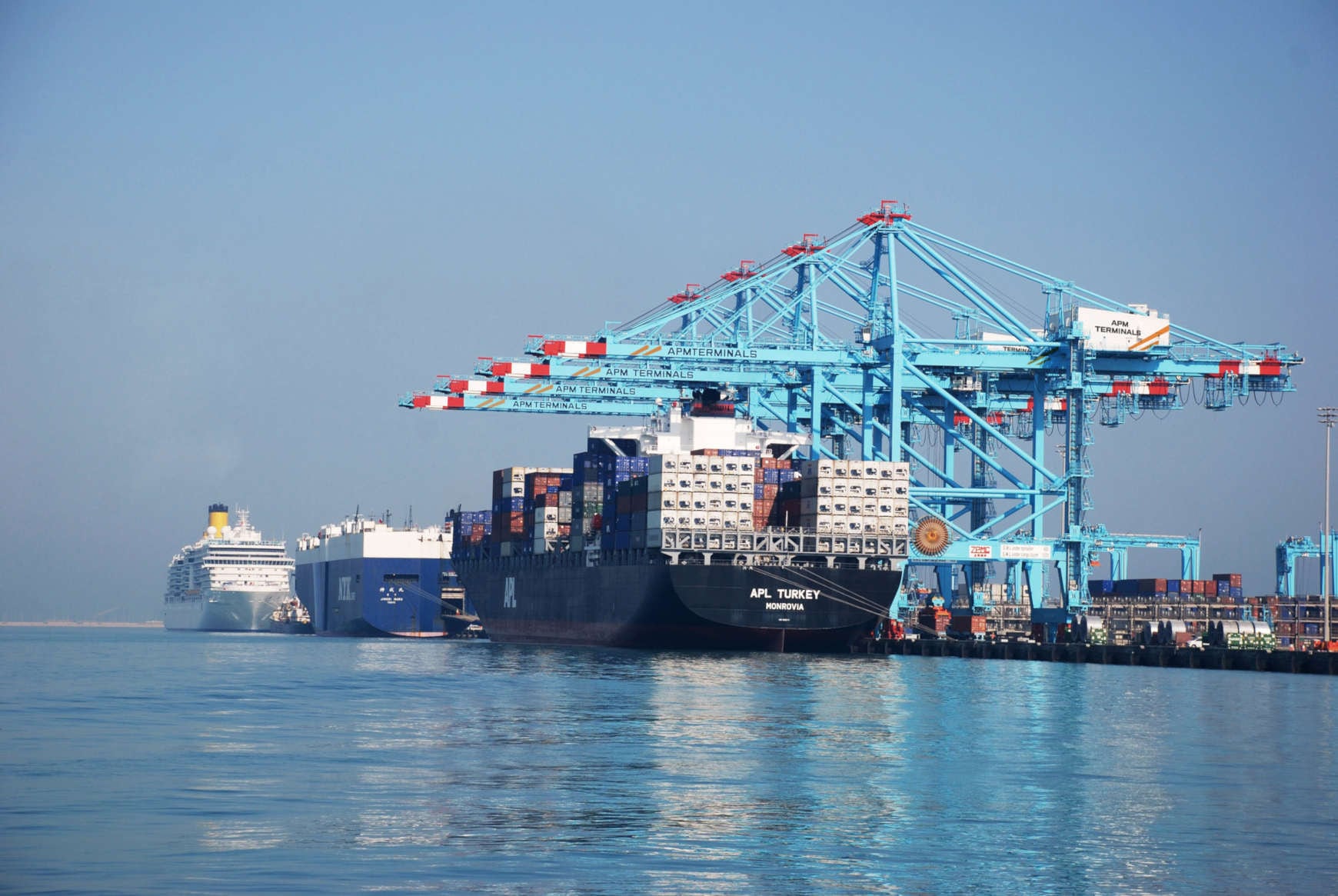
30/08/22
Global Sea-to-Air Hub cuts customs time and costs at APM Terminals Bahrain
In the last year, the time and cost of logistics activities between Khalifa Bin Salman Port and Bahrain International Airport has been slashed, thanks to the launch of a new sea-to-air multimodal logistics hub connecting the two facilities. APM Terminals managing director Maureen Bannerman explains how this new initiative could give logistics and delivery companies quicker and more cost-effective access to the GCC than ever before.
In December 2021, Bahrain launched its Global Sea-to-Air Hub, a multimodal logistics hub connecting Bahrain International Airport and Khalifa Bin Salman Port (KBSP), a multipurpose cargo and cruise facility, which is operated by the Bahrain arm of APM Terminals.
The hub’s use of cutting-edge technology has streamlined clearance procedures to such an extent that it will offer a two-hour end-to-end bonded lead time for all containers transiting between the airport and KBSP, meaning products can be with customers in half the time and at 40% of the cost.
“Having a fully integrated sea and airport logistics chain is such a unique selling proposition and it is going to be pivotal in putting Bahrain on the map,” says Maureen Bannerman, who took the helm at APM Terminals Bahrain in spring 2021 after almost five years at Dubai Airport “The fact that we can integrate the customs processes will minimise time, minimise paperwork and speed up the overall process, making it so much easier for people to come and do business here in Bahrain.”
The Global Sea-to-Air Hub is just one aspect of Bahrain’s Logistics Sector Strategy, which aims, as part of the country’s wider Economic Recovery Plan, to push its logistics sector into the top 20 in the world. By 2030, Bahrain aims to triple the existing air freight capacity, expand airline flights and double-up sea freight volume, resulting in an overall contribution of 10% to the Kingdom’s GDP.
Highlighting opportunities in logistics
As part of growing the logistics sector in Bahrain, operators have also been putting considerable effort into developing their talent strategies. At APM Terminals, this has centred on its recently launched two-year leadership programme.“It focuses on identifying Bahrainis who have been adversely impacted by Covid and providing opportunities within APM Terminals across varying roles,” Bannerman explains. “We want to highlight the opportunities that exist across the logistics sector and try to attract new talent. We have started the selection process and it is incredibly exciting.”
The first phase focuses on encouraging mid to senior-level Bahrainis in leadership positions to explore the opportunities available to them in fields that include Government Relations, Finance, Operations, Transformation, Asset Management and HSSE.
APM Terminals is also working with Bahrain Polytechnic, which partners with it on many of its talent initiatives, on an internship programme. There are currently nine individuals working as interns across the business.
Keeping an open mind
With the e-commerce market forecast to reach a value of $50bn by 2025, an important focus for logistics operators in Bahrain is investing in infrastructure, equipment and technology to give logistics and delivery companies quick and cost-effective access to sources of demand in the Gulf Cooperation Council (GCC).“We’re hoping to implement some ambient warehousing at the port, which will be of real support to our customers,” Bannerman says. “We are always looking at opportunities of how we can support and drive the logistics sector in Bahrain; the key is to keep an open mind on how we can do that.”
Over the next three years, APM Terminals also plans to roll out the automated approach demonstrated at the Sea-to-Air Hub to all customer touchpoints. “Digitisation is one of the key pillars of our strategy; we want to speed up the process and minimise paperwork not just for seaport and airport connectivity but for all our customers,” Bannerman says.
Other targets include bringing down the time trucks spend in the port to less than 30 minutes, increasing the productivity of gantry cranes to 37 containers per hour per crane and launching a new bundle of services for importers and exporters.
Investing in technology
When she joined APM Terminals, Bannerman was slightly daunted as it had won ‘Terminal of the Year 2020’ at the APM Terminals Africa and Middle East Region awards the week she arrived. “It was an incredibly proud moment for APM Terminals Bahrain, but all I was thinking was, ‘How can you top that?’” she recalls.Since then, the organisation has played a key role in Bahrain’s drive to boost its logistics sector and support the country’s economic growth. “It has been fantastic to be part of shaping APM Terminals’ transformation journey, and to be honest we have gone from strength to strength. We are not afraid to invest in the technology to ease any customer pain point and to make that logistics process a lot more streamlined. It is going to be something, I think, that everyone will be looking at and Covid has just been a catalyst for that.”